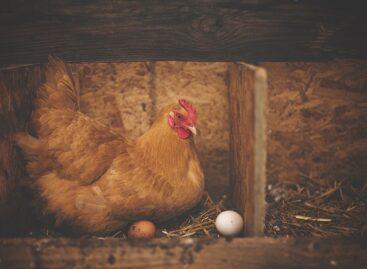The autumn harvest in Békés county has ended
The autumn harvest in Békés county has ended. Farmers are unhappy because of the low purchase prices and the damage caused by overgrown pucks.

(Photo: Pixabay)
The harvesting of sunflowers and corn in Békés county has also been completed. Based on data from the Békés County Directorate of the National Chamber of Agrarian Economy (NAK), sunflowers were grown on almost 85,000 hectares, the average yield was 2.8 tons per hectare; a total of about 238,000 tons of crops were harvested. 468.8 thousand tons of corn were harvested from 67.9 thousand hectares; the average yield in the county was 6.9 tons per hectare. In addition, soybeans and potatoes were grown in a small area, producing almost 4,000 tons of both. However, the sugar beet grown on 134 hectares was infected by a fungal disease, so it became unprocessable, the factories did not take it from the producers, most of it remained in the ground – it was said at the meeting of the harvest coordination committee.
According to Béla Barabás, secretary of the Békés County Agricultural Association, the purchase prices are “humiliatingly low”
Based on what was said at the meeting, 105-110 thousand tons of sunflower; 46-53 thousand for corn; and soybeans are taken for HUF 130-140 thousand. Although experts previously feared that the storage capacity would not be sufficient, in the end no problems with storage occurred. However, with autumn crops, yes. Due to the dry, unfavorable weather, the sown autumn cabbage-rape did not emerge everywhere, in other places “due to field vole infection, there is significant spot-like, in some places, field-level extinction”. In the case of autumn wheat, according to what was said at the committee meeting, “the amount of metal-sealed seed used has decreased significantly, and the amount of fertilizer spread is also 40-50 percent less compared to previous years. Farmers hesitate whether to sow wheat because of the vole infection. According to the NAK county directorate, there is certainly less planted area than planned next year. 8,000 hectares of rapeseed are expected, while the intention to sow 45,000 hectares of wheat is not expected to be realized – they wrote.
The Nagysénási Farmers’ Circle, the Gerendás Farmers’ Circle and the Orosháza és Térsége Farmers’ Circle drafted a joint letter to NAK and the Association of Hungarian Farmers’ Associations and Farmers’ Cooperatives (MAGOSZ)
As it was written, the prices of seeds, plant protection agents, and fertilizers are “skyrocketing”, and the purchase price of grain has decreased by less than half since last year. According to some of the farmers, the change in the European Union regulations hinders economic production to a much greater extent than can be compensated with area-based subsidies – they believe. As an example, they wrote that until September 30, stubble could only be removed at a depth of 10 centimeters; and due to environmental regulations, it was not possible to chemically treat the field vole invasion. “From July, it was possible to place exterminators in the burrows of rodents, but this means up to a million holes on 100 hectares, for which there is no capacity, making the permit unreasonable; and the lack of plowing further ensured the appropriate living space for the rodents,” they noted. This caused considerable damage to the farmers, while the purchase price of field crops does not even cover their own costs, they underlined. The three business circles recommend a high degree of integration, uniform organization of production, and joint purchases and joint sales in order to reduce the price of input materials.
MTI
Related news
Brussels wants to take away area-based agricultural subsidies from farmers
Brussels is planning to take away area-based agricultural subsidies from…
Read more >The processing sales price of UHT milk increased the most in September
According to AKI PÁIR data, the national average producer price…
Read more >Bird flu also appeared in Bács-Kiskun county, so the epidemic already affects six counties
In the past few days, the disease was identified in…
Read more >Related news
“Road to economic neutrality” – Eastern or Western opening?
An important element of the government’s economic strategy and communication…
Read more >The distributor of Rama and Flora margarines has changed its name
The domestic distributor of the well-known and popular Rama, Flora,…
Read more >Henkel Hungary also set out the pink ribbon this year
The “Pink October” campaign started last year continues. The movement…
Read more >






